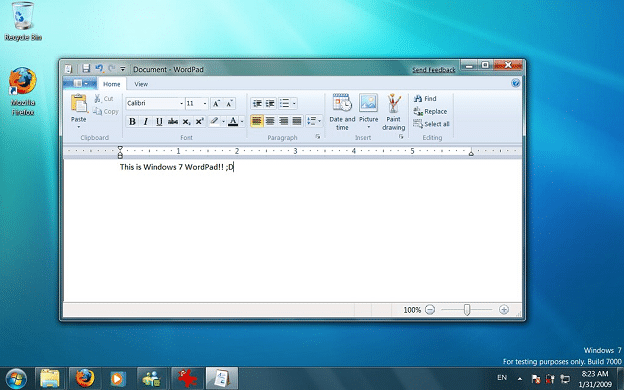Microsoft plans to eliminate WordPad. Why does this small change signal big shifts ahead?
In a move that could impact millions of Windows users, Microsoft has announced its decision to phase out WordPad, a longtime staple of the Windows operating system. The popular text editing application, known for its simplicity and accessibility, is set to be removed in a future release of Windows. While not as feature-rich as Microsoft Word, which comes at a price, WordPad has been a reliable tool for basic writing and editing tasks and has been freely available to users for years.
However, according to a recent report by IANS, Microsoft has cited the lack of updates as the primary reason for discontinuing WordPad. The company encourages users to transition to alternatives like Microsoft Word for creating rich text documents (.doc and .rtf) and Windows Notepad for plain text documents (.txt). A support note from the company states, “WordPad is no longer being updated and will be removed in a future release of Windows.”
This decision follows closely on the heels of Microsoft’s announcement of updates to Notepad, another fundamental text editing tool within Windows. Historically, Notepad offered limited functionality, primarily serving as a platform for basic text input and formatting. However, recent developments promise to enhance the user experience, with features such as auto-save and tab retraction being introduced.
About Windows 12 and Microsoft’s focus on AI
As Microsoft advances its efforts in the field of generative artificial intelligence (AI), rumors abound regarding the forthcoming Windows 12, expected to launch in 2024. While specific details about Windows 12-exclusive features remain undisclosed, Microsoft’s commitment to AI innovation remains apparent.
Microsoft’s focus on generative AI extends beyond the Windows operating system. The company has made significant strides with its AI-powered Bing search engine, introducing capabilities such as image generation and voice input. Microsoft Vice President Yusuf Mehdi recently revealed that Bing has garnered “more than 100 million daily active users every day,” highlighting the growing popularity of AI-driven search solutions.
The competition between Microsoft and Google in the AI-powered search space has intensified, with both companies rolling out innovative features. Google introduced its own AI chatbot, Bard, and revamped Google Search with AI capabilities around the same time as Bing’s launch. Microsoft CEO Satya Nadella previously referred to Google as the “800-pound gorilla” of online search, suggesting that increased competition benefits consumers and drives innovation in the marketplace.
As Windows users prepare for the eventual retirement of WordPad, they will need to adapt to alternative solutions, such as Microsoft Word and Notepad, while keeping an eye on the evolving landscape of AI-powered technology, including the potential game-changing features of Windows 12.
















































































